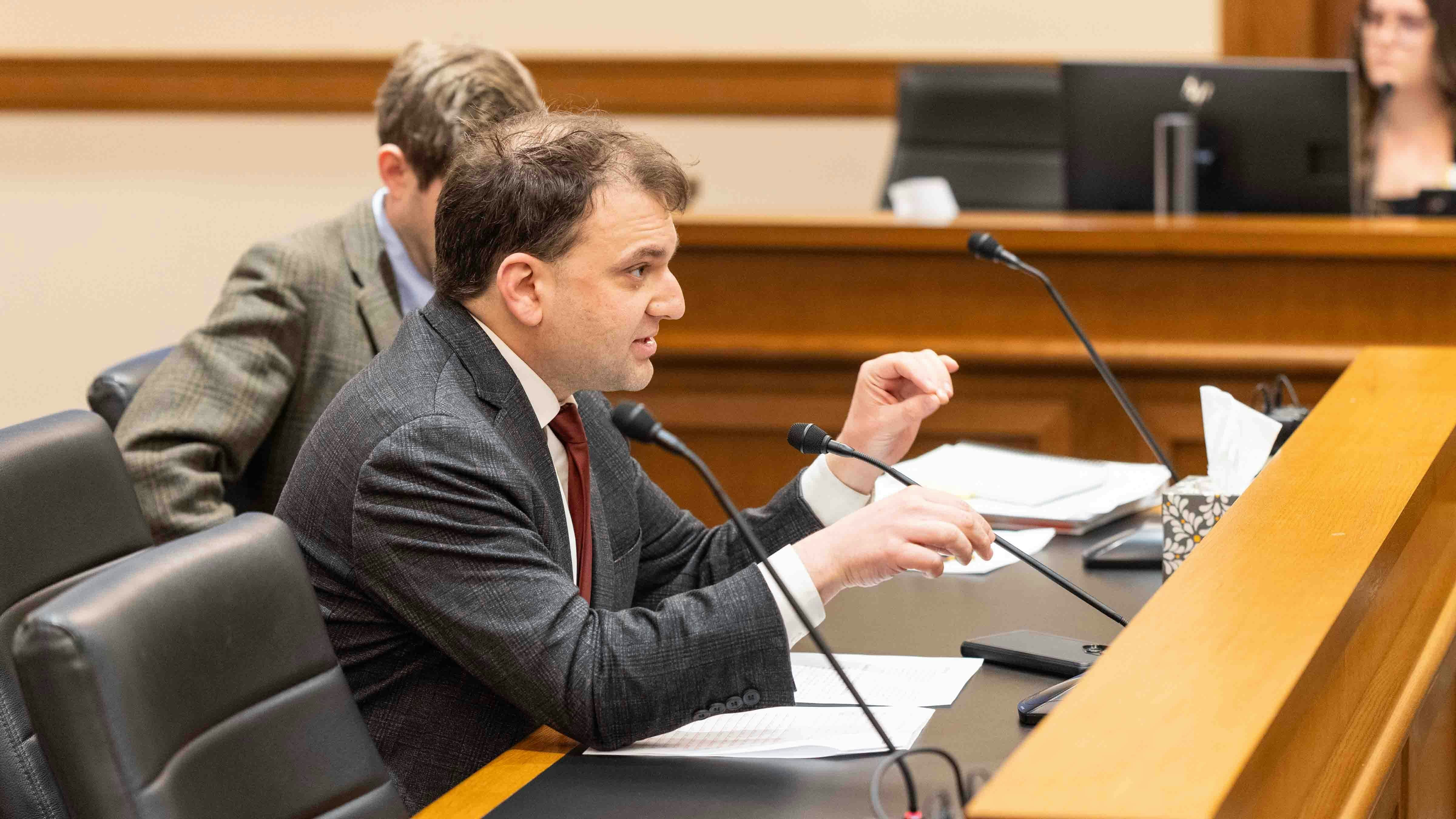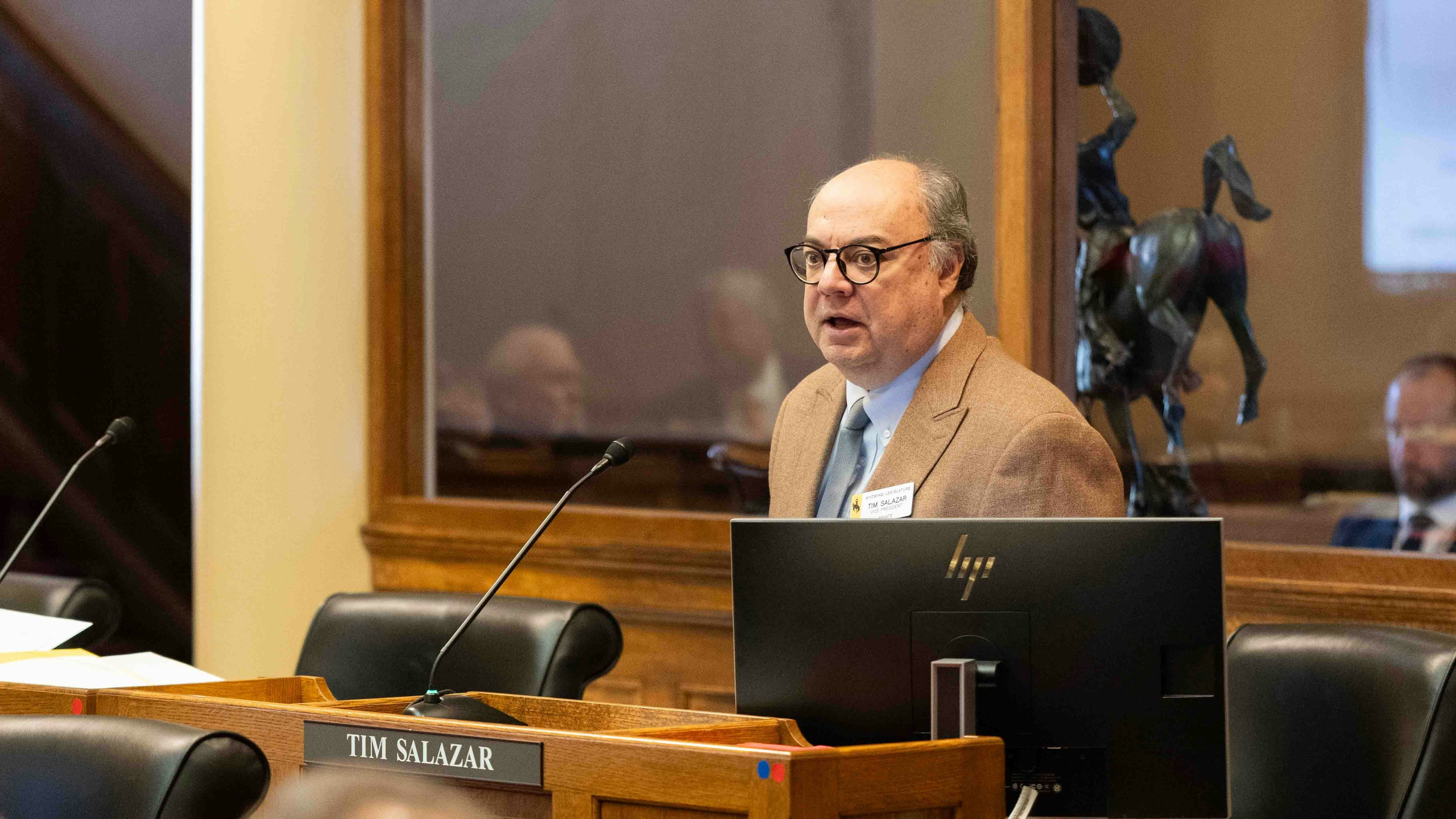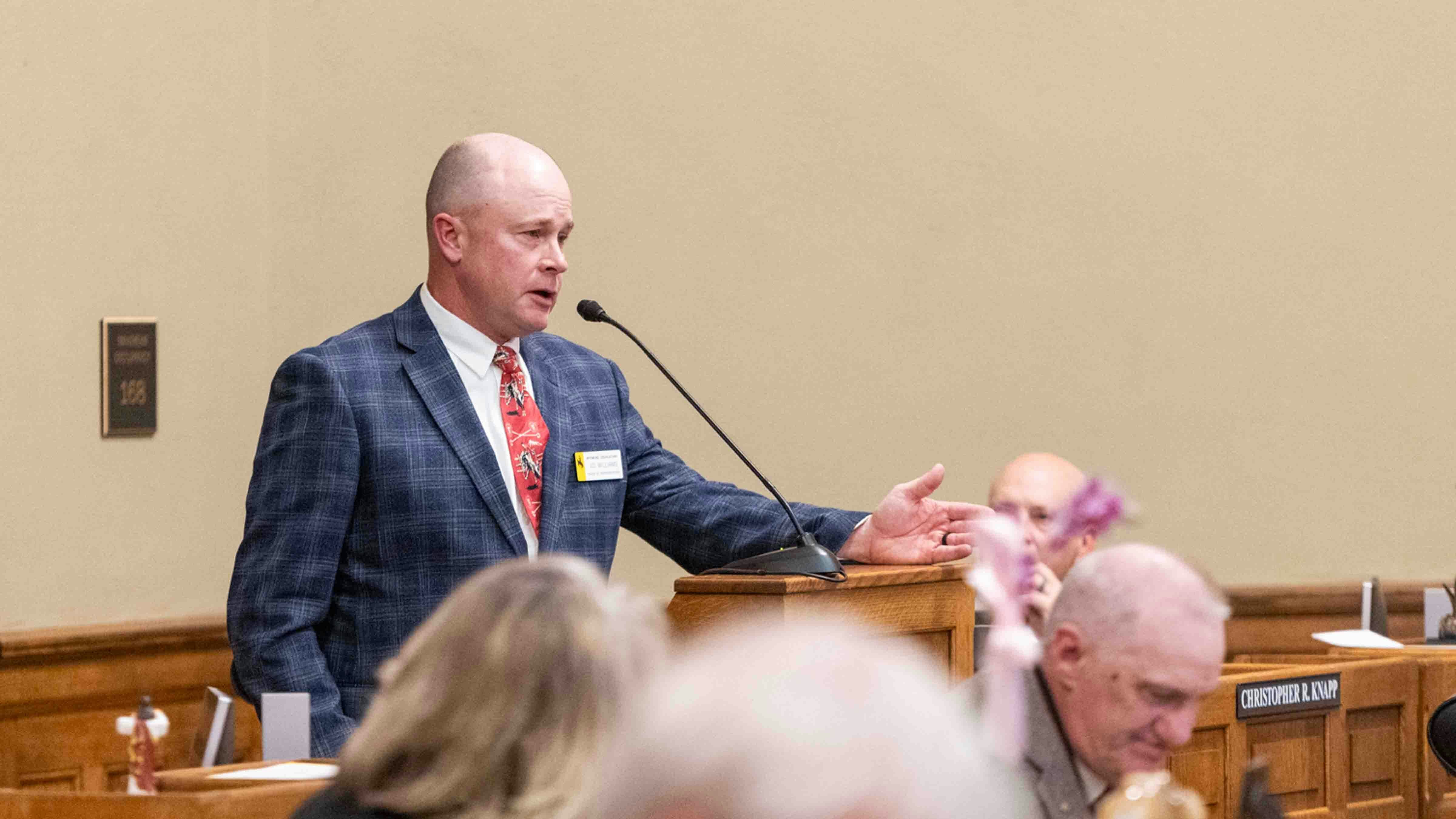With private companies eyeing Wyoming as a home for small nuclear reactors and accompanying spent fuel disposal sites, lawmakers are weighing risk-versus-opportunity as they consider whether to green-light multiplying those sites.
State law already allows temporary, high-level radioactive waste storage facilities within its borders — an allowance coming into play as TerraPower builds a nuclear power generation facility outside Kemmerer in the southwest corner of the state.
Going into the 2026 winter lawmaking session, the question is whether to also let reactor manufacturers maintain waste facilities in-state.
Lawmakers on the Minerals, Business and Economic Development Committee are split as they approach a meeting on Tuesday on the topic.
Proponents of the expansion say it poses an economic boon for Wyoming, while opponents say it amounts to rushing toward unknown risks without proper oversight.
For Rep. Reuben Tarver, R-Gillette, a U.S. Supreme Court decision supporting the authority of the U.S. Nuclear Regulatory Commission (NRC) to authorize standalone private waste facilities is top of mind.
The decision also upheld limits on the ability of concerned entities, like states, to challenge those permits.
“If we introduce this law that accepts (this expansion of waste facilities) and we don’t have anything in place that will block permanent or intermediate storage, we’re basically saying we’re interested in nuclear waste and/or spent fuel being stored here,” Tarver told Cowboy State Daily on Wednesday.
A proliferation with little ability to object when a less-than-desirable company approaches the state, said Tarver. He added that he has no reason to distrust companies currently approaching the state, like California-based Radiant Industries.
But he said he could foresee a future in which less-desirable players exclude Wyomingites from the NRC’s permitting process. That’s because it happened in Texas, which gave rise to the HighCourt case, Tarver added.
“We need to pump the brakes and do our due diligence a little more,” said Tarver. “If we pass this law, we’ll set ourselves up for the exact same thing that’s happened in Texas.”
In that case, the state of Texas and a company associated with both ranching and oil production sought to challenge the NRC’s approval of a private standalone nuclear waste facility.
The U.S. Supreme Court, in a majority opinion by Justice Brett Kavanaugh, ruled that Texas hadn’t shown its interests were at stake during an earlier, administrative stage in the permitting.
That’s why Wyoming needs laws reserving its authority to make such challenges or block undesirable builds, Tarver said.
During a Feb. 19 meeting of the Minerals Committee Tarver voiced other concerns, asking bill proponents what would happen if a private company keeping spent fuel in Wyoming collapsed.
He reasoned that Wyoming would then be stuck with the waste product.
Roughly a quarter of the 70 reactor sites storing fuel across the country no longer have operational reactors on them, according to the U.S. Department of Energy.
Rep. Kevin Campbell, R-Glenrock, opposed the legislation in stronger terms in a Tuesday guest column for Cowboy State Daily.
“Wyoming is not a dumping ground,” wrote Campbell. “We are not a regulatory loophole. And we are not so desperate for jobs or headlines that we should compromise our long-term safety and sovereignty.
“We can be national leaders without being nuclear guinea pigs,” he continued. “If we rewrite our rules every time a venture-backed company from Silicon Valley knocks on our door, we are not leading — we’re being played.”
Business Is Now
Sen. Ed Cooper, R-Tensleep, countered in his own interview, pointing to nuclear site expansion as an economic boon for Wyoming.
“We are at the edge of a large nuclear boom all across the nation – and it’s going on all around the rest of the world,” said Cooper.
He said some detractor campaigns amount to “fear-mongering” and blow environmental and other concerns out of proportion.
“Whatever fear-mongering that’s going on out there is really setting Wyoming back,” he said. “I’m not sure what the issue is. The rest of the world does nuclear storage in a very safe and efficient way.”
Committee Co-Chair Jim Anderson, R-Casper, emphasized that what the proposed bill calls waste isn’t necessarily waste.
“It’s spent fuel rods. They still have a lot of energy in them; they can be replenished and reused again,” said Anderson, who supports the proposed legislation.
The United States does not have a repurposing facility for the spent fuel, though entities in other countries reuse it, according to the U.S. Department of Energy. To export the spent fuel to those nations would require a change in federal law, according to Rep. Lloyd Larsen, R-Lander.
The U.S. had a repurposing facility prior, but President Jimmy Carter announced the deferral of that process in 1977. He touted it at the time as a gesture against nuclear arms escalation.
Anderson pointed to U.S.-based storage facilities across 34 states and said those haven’t posed problems.
“I want to have more jobs in Wyoming,” he said. “If we can put this manufacturing facility in, and have 250 jobs, that’s a wonderful thing.”
In promotional materials on Radiant’s website, the company hypes its microreactor as “the world's first portable, zero-emissions power source that works anywhere.”
“It will be the first new commercial reactor design to achieve a fueled test in over 50 years,” continues the website marketing copy. “Our microreactor can bring power to remote parts of the world and provide backup power for life-saving applications in hospitals or disaster-relief scenarios.”
Larsen told Cowboy State Daily the proposed legislation would add a provision necessary for reactor companies to pursue their business in Wyoming in the first place – and it stipulates that the nuclear reactors would have to be operating Wyoming to site waste facilities in the state.
The waste option forms one part of the cyclical process by which reactors operate, said Larsen.
He clarified that though the proposed legislation uses the term “waste” for the spent fuel, it won’t remain waste if in the future the U.S. adopts a means to repurpose it.
No Dump Yet
The United States currently doesn’t have a main, long-term storage facility for the spent fuel, which has driven both facility on-site storage and standalone waste facilities.
Federal law has long designated the Yucca Mountain Nuclear Waste Repository in Nevada as the future permanent site for the spent fuel, but “significant political controversy” has scuttled that project, Kavanaugh wrote in his majority opinion on the matter in late June.
The spent fuel rods are “dangerous,” noted Kavanaugh.
They can be transported and stored safely, according to the U.S. DOE, which says more than 2,500 cask shipments of spent fuel have been transported across the U.S. in the past 55 years “without any radiological releases to the environment or harm to the public.”
Accidents aren’t unheard-of, however.
For example, a Japanese power plant in 2011 weathered a leak that put the spent fuel at risk of releasing radioactive material, NPR reported at the time.
A drum containing radioactive waste blew up in an underground nuclear dump in New Mexico in 2014, the L.A. Times reported.
Clair McFarland can be reached at clair@cowboystatedaily.com.





